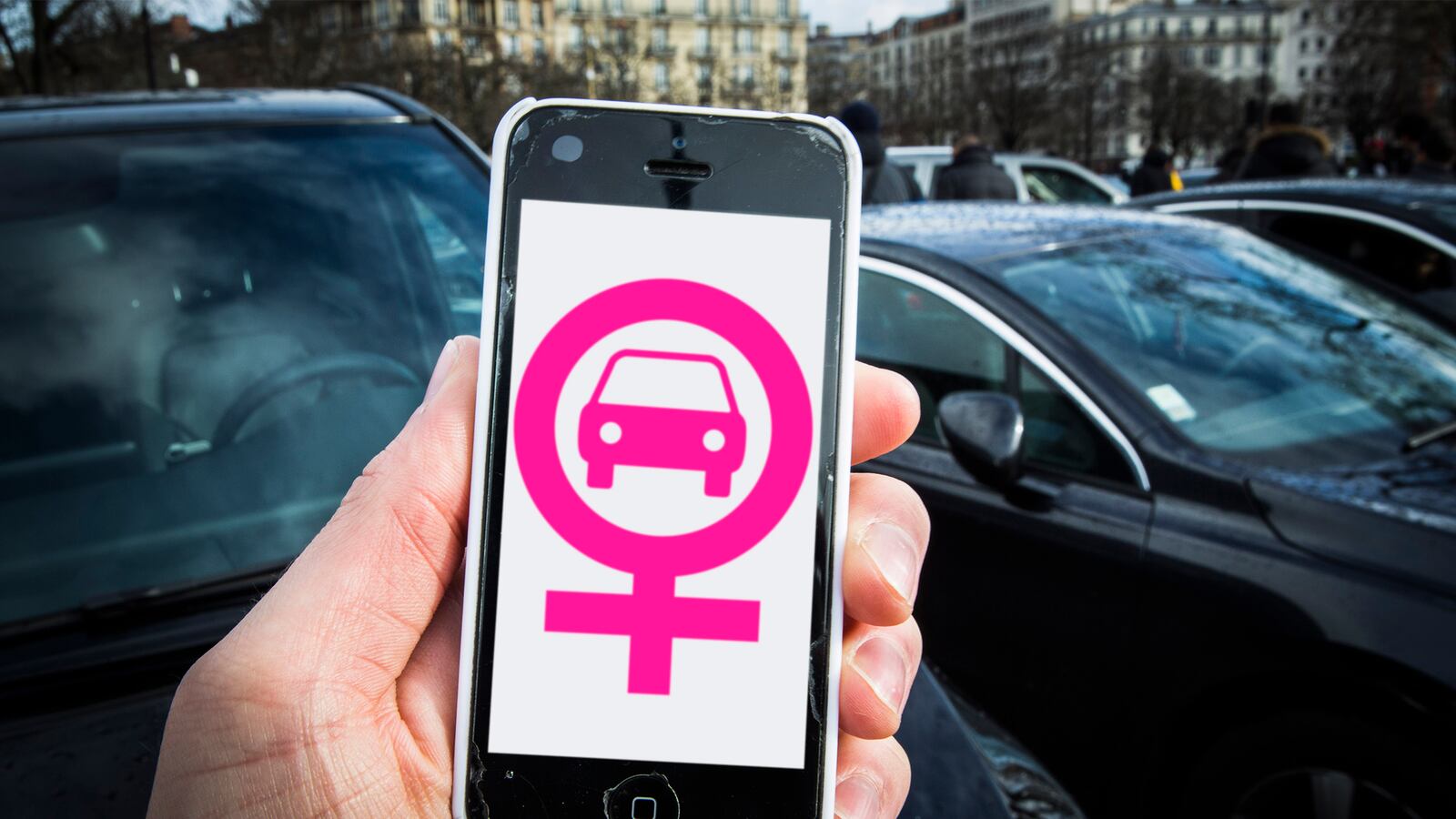A Los Angeles man posing as an Uber driver was arrested this weekend for kidnapping and raping a woman, choking her unconscious in the backseat of his SUV.
Such horror stories have become increasingly common with the proliferation of privatized ride-sharing companies like Uber and Lyft.
Though Uber dominates the market, it’s been relentlessly dogged by media reports of male drivers sexually assaulting or harassing women, opening up a market for women’s-only spin-offs.
The latest is Chariot for Women, a Boston-based company that will reportedly launch in all 50 states on April 19, employing only women drivers and accepting only women and children as passengers.
Michael Pelletz of Charlton, Massachusetts, conceived Chariot for Women while driving for Uber, according to the company’s website. (Requests for comment from Pelletz were not answered by the time this article was published.)
The lightbulb went off “one terrifying night, after a year of picking up and dropping off over 850 passengers,” when Pelletz “had his first unsafe ride”: an intoxicated male passenger who was “incoherently babbling behind his rolled-back eyes” before he passed out in the backseat.
Pelletz thought to himself: “What if I was a woman? How would a woman handle this situation, especially when I was so nervous myself?”
He thought of the college girls he’d picked up in the wee hours of the morning; the women he’d seen get into the wrong ride-sharing car. “Just one bad apple behind the wheel, and those women would not be safe at all,” Chariot’s website reads. “Michael’s fatherly instinct kicked in.”
Speaking to The Washington Post, Pelletz said he enjoyed his tenure with Uber, but that he was shocked by the number of female passengers who complained of being hit on by other Uber drivers.
He also cited Pretty Woman as inspiration for Chariot. (“I saw something in this movie,” he said. “I was made to take care of women, to love them, respect them.”)
Chariot for Women is not the first women’s only ride-sharing company.
In 2014, Stella Mateo launched SheTaxis, a cab service catering to women in the New York area with a fleet of women drivers. They wore white blouses and pink scarves as uniforms, and the company launched to considerable media buzz.
Fernando Mateo, Stella’s husband and the founding president of the New York State Federation of Taxi Drivers, publicly supported his wife’s company.
After the initial deluge of press in 2014, SheTaxis has hardly been mentioned in the media. A contact number on its website redirected to an answering machine service for a company called Carmel Limo.
SheTaxis did not return an emailed request for comment from The Daily Beast.
As SheTaxis did in 2014, Chariot for Women has vigorously denied that the company violates gender discrimination laws.
“Courts have long held that hiring on the basis of sex is permissible where sex is a bona fide occupational qualification in the context of serving privacy interests,” Chase Liu, general counsel for Chariot for Women, told a Massachusetts-based news outlet.
“At stake here is more than just privacy—safety and security are also at issue. As such, we are confident that our hiring of women drivers constitutes a bona fide occupational qualification, where doing so is necessary to uphold the privacy, safety and security of our drivers and riders.”
But Paul Liggieri, a New York-based attorney specializing in workplace sexual harassment and discrimination, said the company’s “bona fide occupational qualification” argument lacks merit in this case.
“It usually applies to instances where this type of qualification is necessary for the business to operate,” Liggieri told The Daily Beast, citing religion and safety as occasionally necessary qualifications.
A Catholic elementary school, for example, could require that its chaplain be Catholic under constitutional law. Similarly, a pilot over a certain age could be deemed unqualified and asked to retire due to safety concerns.
“I don’t see any type of safety argument here,” Liggieri said. “Mere customer satisfaction is not enough to justify that kind of defense.”
More than 2,200 women in Massachusetts have applied to drive for Chariot for Women, all of whom must pass rigorous background checks, including state-compiled criminal records.
The company is working with lawmakers to incorporate fingerprint scanning in its background checks, a months-long, FBI-led process that involves checking all records pertaining to arrests, federal employment, naturaliztion, or military service.
While taxi companies in New York and Boston check a prospective driver’s fingerprint records that, in theory, include his or her full criminal history in the U.S., Uber’s background checks use a database that can only access the driver’s records from the past seven years.
Either way, no background check is foolproof. And despite Uber’s imperfect reputation, many have argued that ride-sharing services like Uber are safer than taxis because every ride is tracked through a computer database.
Chariot also said it will employ transgender women, which opens up another can of worms: What about people who identify as genderqueer and refer to themselves with plural pronouns (“they,” “them”) rather than singular gender pronouns? Will prospective drivers and passengers be banned from Chariot if they don’t identify as women? Furthermore, how will Chariot monitor gender identification?
In progressive cities like Boston, discriminating against self-identifying men may be less controversial than discriminating against people who identify between or outside gender binary conventions.






